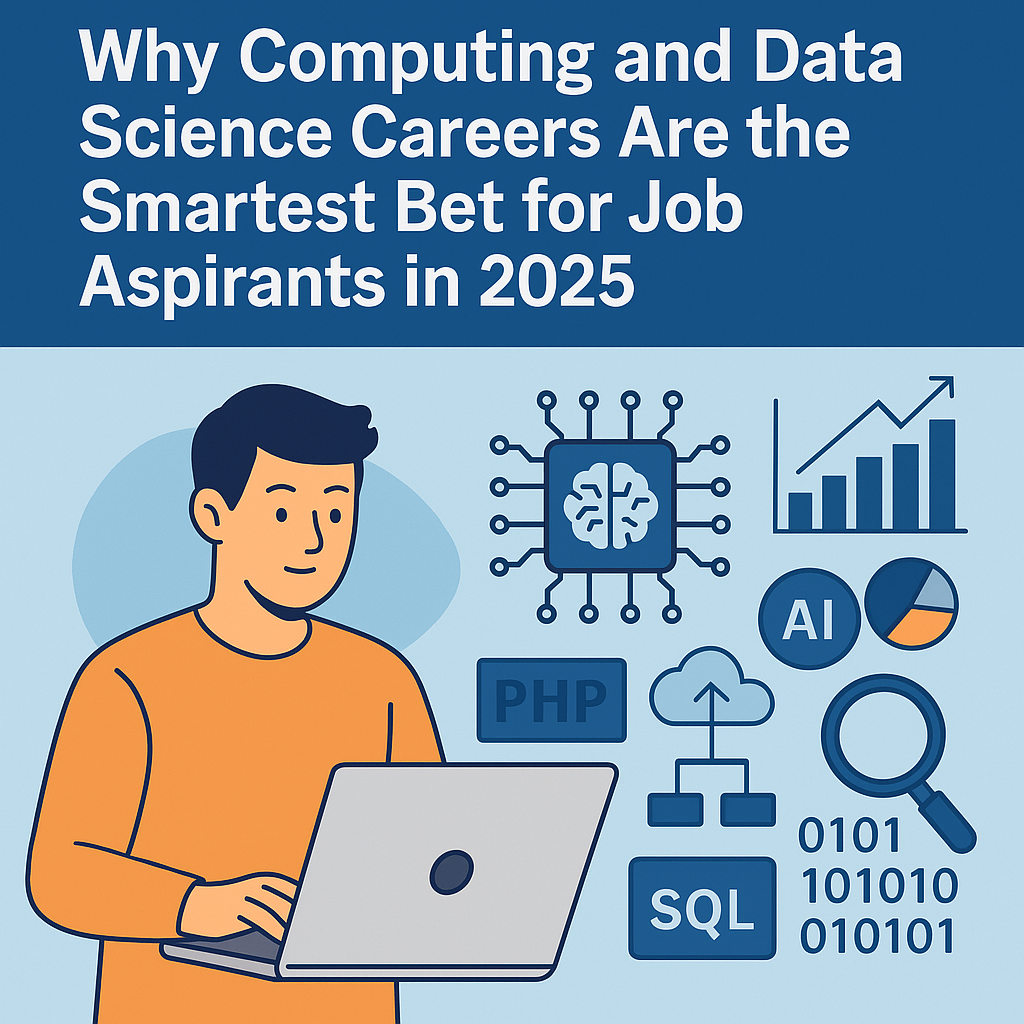
In an age where automation is reshaping industries and artificial intelligence is no longer science fiction, careers in computing and data science have emerged as some of the most future-proof and financially rewarding options for job seekers. From building intelligent applications to unlocking hidden insights in big data, professionals equipped with digital skills are becoming indispensable across sectors like finance, healthcare, defence, agriculture, and retail.
This insightfultake article is designed to inform students, fresh graduates, and career switchers about the dynamic landscape of computing and data science, while offering practical advice to help them align their ambitions with evolving job market demands.
The Surge in Demand for Tech-Driven Roles
As industries embrace digital transformation, the demand for professionals proficient in computer science, artificial intelligence (AI), machine learning (ML), and data science (DS) continues to soar. According to global recruitment portals, average salaries for data scientists and computing professionals in countries like the UK and US have crossed $70,000 annually, with India witnessing rapid growth in domestic tech hiring as well.
What sets these careers apart is not just the high pay, but the flexibility to work across disciplines—from law and education to music and healthcare. Even professionals from non-tech backgrounds can opt for conversion courses, such as a master’s in data science or computing, to pivot into this domain.
Key Skills That Drive Employability
Employers are actively seeking candidates who can demonstrate proficiency in both foundational and specialized computing skills. These include:
- Programming Languages: Python and JavaScript are staples, especially for AI and data-driven tasks. Other valuable languages include Java, C++, R, and even modern web technologies like HTML5 and CSS.
- Databases and Cloud Platforms: Knowledge of SQL, MongoDB, and cloud services like AWS and Azure are now expected.
- Data Analysis & Visualization: Tools like Pandas, Numpy, Matplotlib, Seaborn, Power BI, and Tableau allow professionals to derive insights from raw data.
- AI/ML Libraries: Frameworks such as TensorFlow, PyTorch, and Keras are essential for developing smart models and intelligent systems.
However, while technical know-how gets you through the door, it’s soft skills that ensure you stay in the room. Communication, problem-solving, teamwork, and the ability to translate complex ideas into actionable insights are increasingly valued in the industry.
Educational Pathways: From Self-Learning to Advanced Degrees
Job aspirants have a variety of educational routes to choose from. While self-learning platforms like Coursera, edX, and Udemy offer flexibility, formal degrees such as an MSc in Computing, AI, or Data Science often provide deeper knowledge, industry connections, and hands-on project experience.
Before enrolling in any program, students should assess whether the curriculum emphasizes both theoretical and practical learning—including labs, real-world case studies, and capstone projects.
Real-World Applications and Career Roles
Data science and computing skills open the door to several high-impact job roles, such as:
- Data Scientist/Analyst: Extract actionable insights from structured and unstructured data.
- AI Engineer: Design and implement intelligent algorithms for automation and prediction.
- Cybersecurity Analyst: Protect systems from digital threats and ensure data integrity.
- Software Developer: Build web, mobile, or desktop applications tailored to user needs.
- Cloud Engineer: Manage and optimize cloud-based infrastructures for scalable computing.
These roles are not just limited to tech companies. Hospitals need AI to predict patient risks, banks use ML models to detect fraud, and agriculture firms leverage data to optimize crop yields.
The AI Revolution: A Catalyst for Career Growth
Artificial Intelligence is no longer a buzzword—it’s a driver of employment and innovation. Contrary to fears that AI will replace jobs, it is actually creating more opportunities for those with the right skills. According to a recent industry study, AI is expected to contribute up to $15.7 trillion to the global economy by 2030, with a significant chunk coming from job creation in data-centric roles.
To stay ahead of the curve, aspirants must develop a mindset of continuous learning. The technology ecosystem is evolving fast, and the most employable candidates are those who adapt just as quickly.
The Time to Act Is Now
In 2025 and beyond, the lines between technology and traditional fields will blur even further. Whether you’re a student choosing your major, a working professional eyeing a transition, or a graduate seeking your first job, investing in computing and data science skills is a decision that pays off—both intellectually and financially.
Start small. Build a portfolio. Join online communities. Contribute to open-source projects. And most importantly, don’t be afraid to fail forward. Because in the world of tech, your greatest asset is your ability to keep learning.

